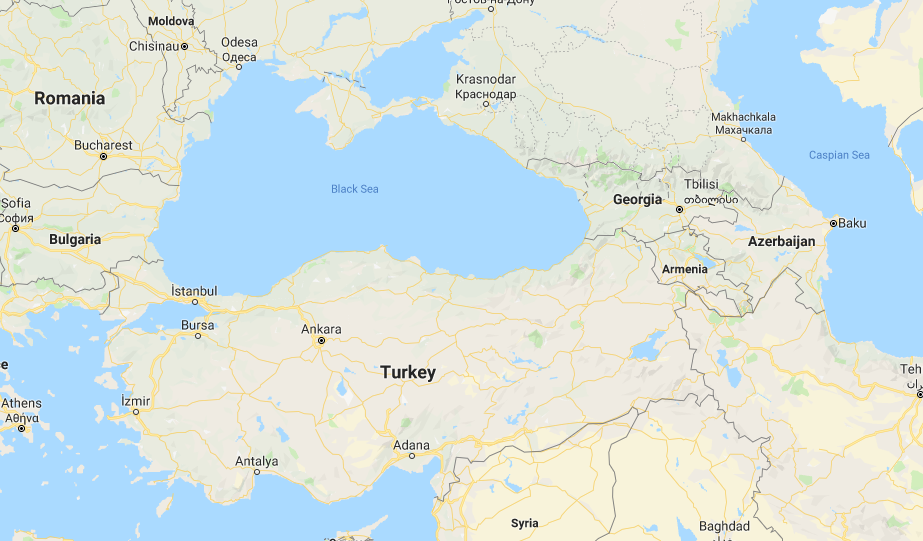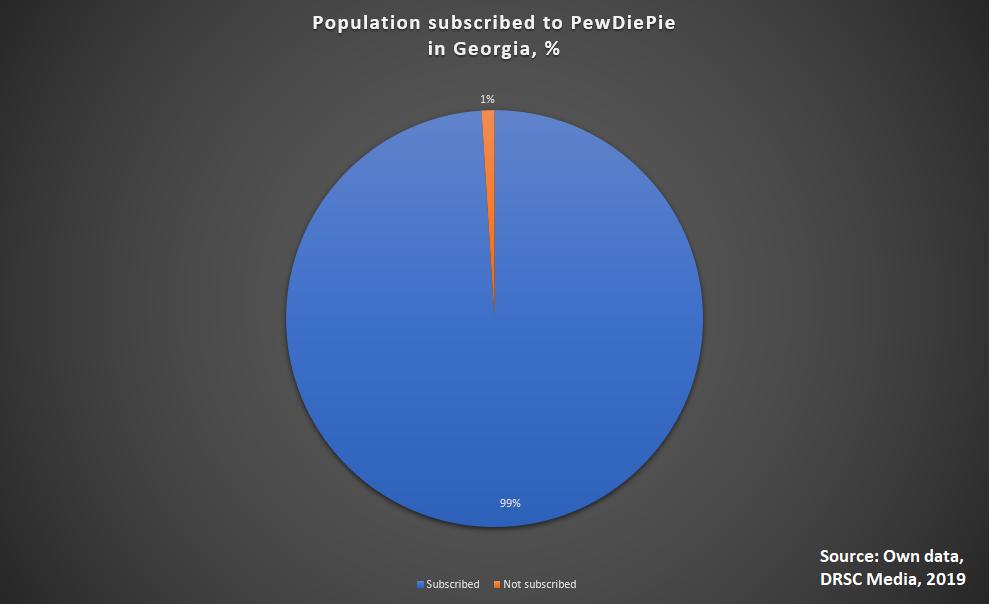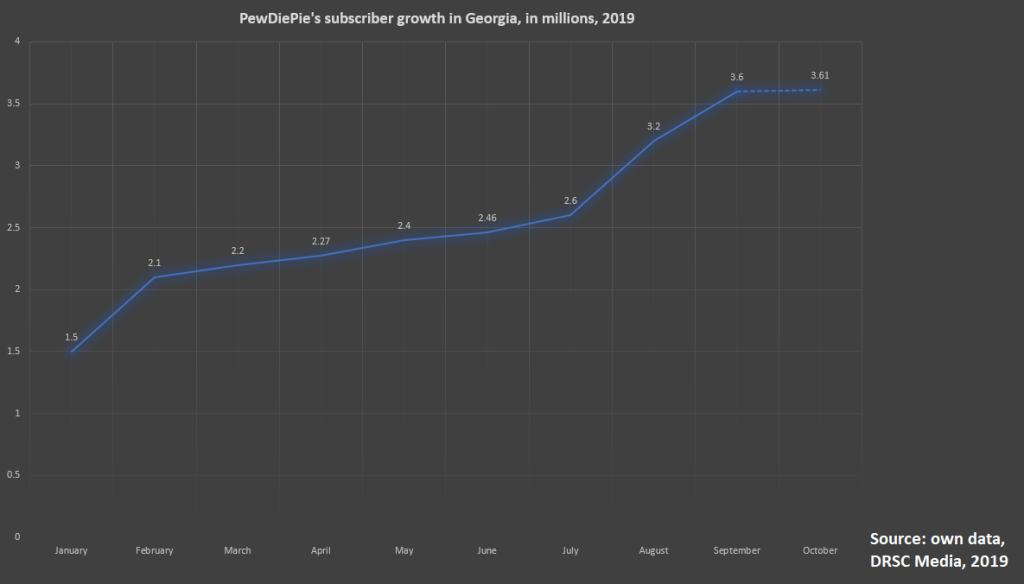
Georgia, a relatively unknown country, has been put on the map once again for a few minutes thanks to PewDiePie.
Artículo disponible en Español | Article disponible en Français
In PewDiePie’s recent video “Why I stopped.”, the creator has shined the spotlight on a relatively small and unknown country, named Georgia. While only a few Europeans might have heard about this country, with the rest not being sure whether it’s the American state of Georgia or some other Georgia, most of us will just eventually forget its existence and be unable to place it on a map, thinking, when asked, that it is somewhere in Eastern Europe, maybe next to Romania or some other of those small countries. Who knows? Who cares anyway? Exactly, nobody.
These two minutes of relevance were given following the ridiculous controversy about the sweater the Swedish creator wore in his apology video for the donation to ADL, controversy that we already covered in a different article. As explained, most people thought the cross on the sweater was a Nazi/Iron cross, automatically blaming the creator of conveying a double message. It would turn out this controversy already took place in the past, as this is not the first time he wears this specific sweater, and that the cross is actually a Bolnisi cross, which is also used on Georgia’s flag. The creator has also mentioned multiple times being a big fan of the creations of the clothing brand “Vetements” and its designer, Demna Gvasalia, who turns out to be Georgian. For instance, in his explanation video, the creator is also wearing one of the creations of Vetements, a sweater that is inside out. Ironically, the designer in question has announced quitting Vetements just a few days ago. Below, the sweater in question that caused all the outrage. The letters in Georgian read “Have mercy on us, Lord”:

Coming back to Georgia, the country is actually located on the border of the European continent and the Asian continent, next to countries such as Armenia and… er… Let us check a map first. Oh, right, Azerbaijan, in the Caucasus region, and formed part of the Soviet Union until this one fell apart in 1991. This was followed by a coup d’état and a civil war, lasting until 1995. In the last few years of the decade of 2010, the country has been in a similar situation to the one Ukraine, Crimea and Russia are, although, taking in account we are not attempting to make a serious article on the matter, we’ll leave this out. Readers interested will easily find the information needed by just looking up “Georgia Russia” on their preferred search engine. For those still struggling to picture the location of the country, here’s a map:

Now, according to data from DRSC Media and these fake charts produced by ourselves, PewDiePie’s popularity in the country is such that close to 99% of the population is subscribed to his channel, with some wondering when a statue in his name will be built, thanking him for bringing attention to this small nation of 3.7 million people and its culture multiple times. As it can be seen in the following pie chart, as of September 2019, 99% of the population forms part of the “9 year old army”, the remaining 1% most likely not having an internet connection:

In this second chart, it can be seen that the percentage of Georgia’s population subscribed to PewDiePie increased after he wore the “Have mercy on us, Lord” sweater in January 2019, with the latest controversy bringing this number even higher:

Regardless, as per usual, the whole matter is pretty laughable, with people trying to use any possible excuse to bring trouble to the creator, finding issues with the smallest possible things and always ignoring positive acts, or actually turning positive acts into negative ones.
Editor’s note: for those who might not have realized it, this article is indeed partially satirical. The data and possible cultural impact of PewDiePie on the country of Georgia is unknown. We’ve just invented these numbers. However, the controversy on the sweater is real.


